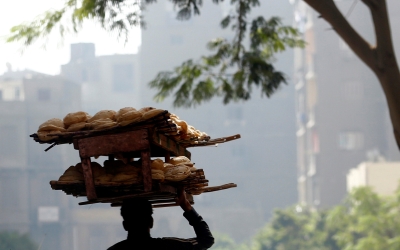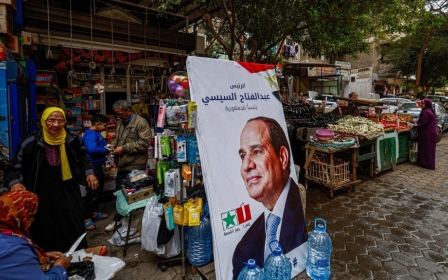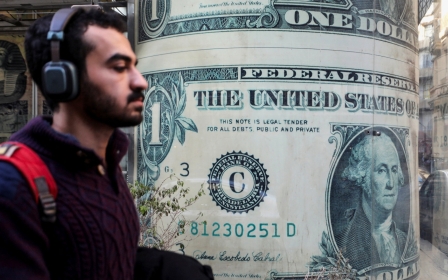Egypt: Sisi government raises price of 'bread of the poor' by 300 percent
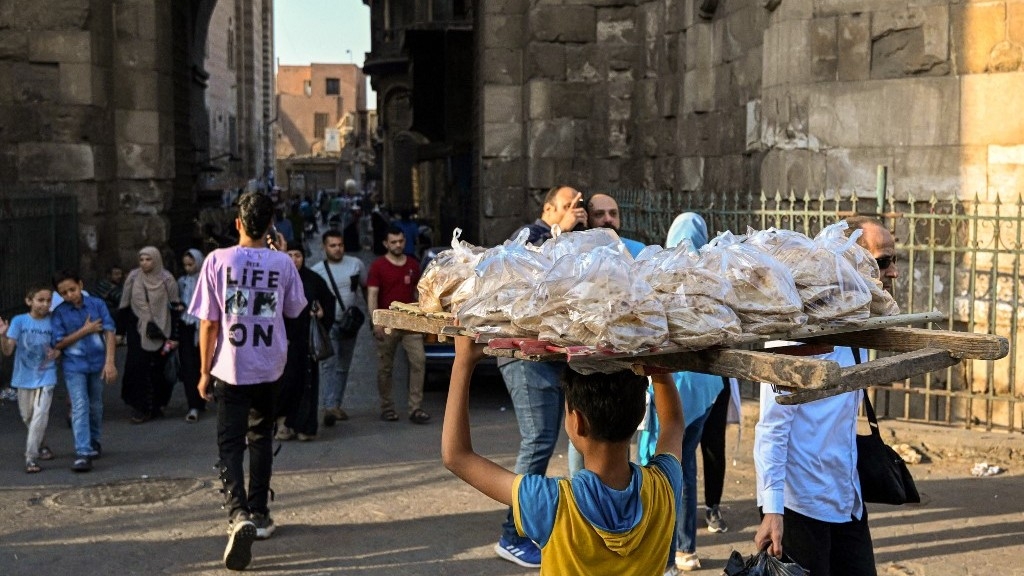
Egypt will raise the price of subsidised bread by 300 percent from June, Prime Minister Mostafa Madbouly said on Wednesday, announcing a change that will affect tens of millions of the impoverished population.
Subsidised bread will cost 20 piastres, up from five piastres, representing 16 percent of the 125-piastre cost of making the bread, according to Supply Minister Ali Moselhy.
The decision will affect an estimated 65 million Egyptians who rely on bread as their main food staple, said economic analyst Maged Mandour.
“This could have a deeper impact than general food inflation,” he told Middle East Eye.
“The consequences are clear: a rapid increase in poverty rates, which is already an ongoing process,” Mandour added.
New MEE newsletter: Jerusalem Dispatch
Sign up to get the latest insights and analysis on Israel-Palestine, alongside Turkey Unpacked and other MEE newsletters
Raising bread prices has been historically sensitive in Egypt, often sparking national outrage. Bread prices have remained at the same official price since 1988, and attempts to change them in the past were met with fatal national riots.
“Bread, freedom, social justice” was the main chant of Egypt’s 2011 revolution that forced late President Hosni Mubarak out of power.
Madbouly said in a press conference on Monday that a change had to be made, given that 100 billion loaves of subsidised bread are produced in Egypt annually, during a time of significant cost increases.
He said that this policy should generate a revenue of approximately 5bn Egyptian pounds.
The Egyptian pound has lost more than 35 percent of its value since the government’s decision to float the currency in March, as part of bailout conditions set by the International Monetary Fund. It is now trading at around 47 per US dollar.
In February, prior to the currency devaluation decision, the annual consumer price inflation stood at 35.7 percent. It is expected to be much higher in the period following March.
Estimates by the World Bank show that around 29.7 percent of Egypt's population was poor in 2019, before the current crisis.
A blow to the poor
Wednesday's decision comes days after directives by President Abdel Fattah el-Sisi to reduce the burden on the state’s budget.
Sisi announced in a speech last week that the total cost of subsidisation is currently around 130 billion pounds, although this calculation was contradicted by the official statistics published by the ministry of finance, which estimated the price at almost 40bn pounds less.
'The price of every single thing has gone up. My family and I haven't had any meat for over a month'
– Mostafa Mohamed, factory manager in Cairo
Even though its price has remained constant for decades, the size of a loaf of subsidised bread, also known as the "bread of the poor", has gradually decreased from 150 grams to 90 grams.
Mostafa Mohamed, a 42-year-old factory manager and father of six children in Cairo, said that subsidised bread had already witnessed a drop in size and an increase in cost before Madbouly’s decision.
“We are only allowed to buy a limited amount of bread, depending on the size of family, or dependants,” he told MEE.
Regarding the overall rise in food prices, Mohamed said that “the price of every single thing has gone up. My family and I haven't had any meat for over a month.”
Mohamed added that the crisis has been even worse for the low-income factory workers he manages. In recent years, they have been eating a very different diet, which excludes protein-rich meat, chicken and fish.
Workers now rely on bread, potatoes and fava beans, he said.
“Some people can no longer afford luxuries, some people can no longer afford their basic necessities, and others have nothing at all. Everyone is affected,” said Mohamed.
Sisi, who was elected for a third term in December, has previously suggested that bread subsidies need to be reduced.
Ahmed Saeed, a 45-year-old accountant living in Shobra, Cairo, said that the issue of subsidised bread necessarily affected his middle-class family.
"My father has relied on subsidised bread his entire life, and my family of three children also ate subsidised bread for many years due to its low cost," he told MEE.
Debt crisis
The timing of the decision seems to be linked to the country’s debt crisis and attempts to secure more funds to alleviate the state’s chronic budget deficit.
“The regime has consistently followed a policy of transferring the cost of the [debt] crisis to the shoulders of the poor and the middle class,” said Mandour, the economic analyst.
“The main issue facing the country is debt and the cost of debt servicing,” he added.
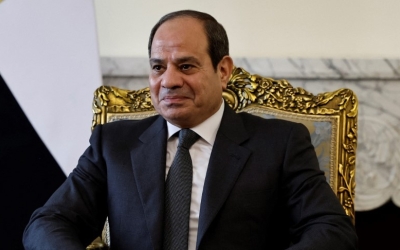
During Sisi’s 10-year presidency, foreign debt has reached $164bn, almost four times the amount it was at the beginning of his tenure.
The debt crisis is attribued to a variety of factors, including the Covid-19 pandemic and the Russia-Ukraine war, but many blame it on Sisi's spending spree on megaprojects and weapons deals since his election in 2014.
In March, the IMF increased its bailout deal with the Sisi government by more than twofold, to reach approximately $8bn, as the government struggled to secure cash.
This deal has been expected to further increase the cost of living for Egypt’s population, of over 106 million.
In 2024, Egypt is due to pay around $32bn in debt service, according to the finance ministry.
Following the IMF deal, Cairo also signed other investment deals to alleviate the debt crisis, including the unprecedented $35bn deal with the United Arab Emirates to develop the coastal area of Ras el-Hekma. Another multibillion-dollar deal is also expected to be signed with Saudi Arabia to develop a Red Sea coastal area, MEE has reported.
Middle East Eye delivers independent and unrivalled coverage and analysis of the Middle East, North Africa and beyond. To learn more about republishing this content and the associated fees, please fill out this form. More about MEE can be found here.


